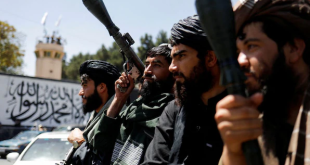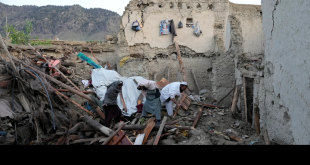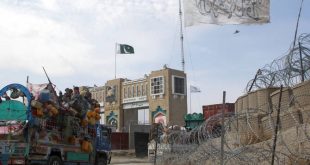KABUL – Russia’s parliament has passed a law enabling courts to lift bans on designated terrorist groups, signaling an effort to normalize ties with Afghanistan’s Taliban government and Syria’s new leadership. The State Duma, the lower house, approved the legislation on Tuesday, allowing courts to remove organizations from Russia’s banned list if they cease terrorist-related activities.
The move paves the way for recognition of the Taliban, which seized power in Afghanistan in August 2021 following the withdrawal of U.S.-led forces. While no country has formally recognized the Taliban, Russia has been strengthening ties, with President Vladimir Putin describing the group as allies in combating terrorism. The Taliban, banned in Russia since 2003, has promised to eradicate Islamic State elements in Afghanistan, although international skepticism remains high due to its restrictive policies, particularly regarding women’s rights.
Russia is also recalibrating its stance in Syria following the recent overthrow of President Bashar al-Assad, which was spearheaded by Hayat Tahrir al-Sham (HTS), a group Moscow designated as a terrorist organization in 2020. Ramzan Kadyrov, the Chechen leader and a close ally of Putin, has called for HTS to be delisted to enable dialogue with Syria’s new authorities. The Kremlin confirmed ongoing contact with the new leadership as it seeks to maintain its military foothold in the Mediterranean through its airbase and naval facilities in Syria.
Russia’s actions reflect a strategic response to persistent security threats from Islamist militant groups operating across Afghanistan and the Middle East. In March, a deadly attack near Moscow, claimed by Islamic State Khorasan (ISIS-K), highlighted the risks posed by such groups. The Taliban’s role in countering ISIS-K has bolstered its importance in Moscow’s regional strategy.
These developments also underscore the complex history between Russia and Afghanistan. The Soviet Union’s 1979 invasion to support a Communist regime led to a decade-long conflict against U.S.-backed mujahideen fighters, resulting in over 15,000 Soviet casualties before the withdrawal in 1989.
The new law reflects Moscow’s broader efforts to assert its influence in regions of geopolitical significance, even as Western nations remain reluctant to engage with the Taliban or Syria’s new leadership.
 Afghanistan Times
Afghanistan Times




